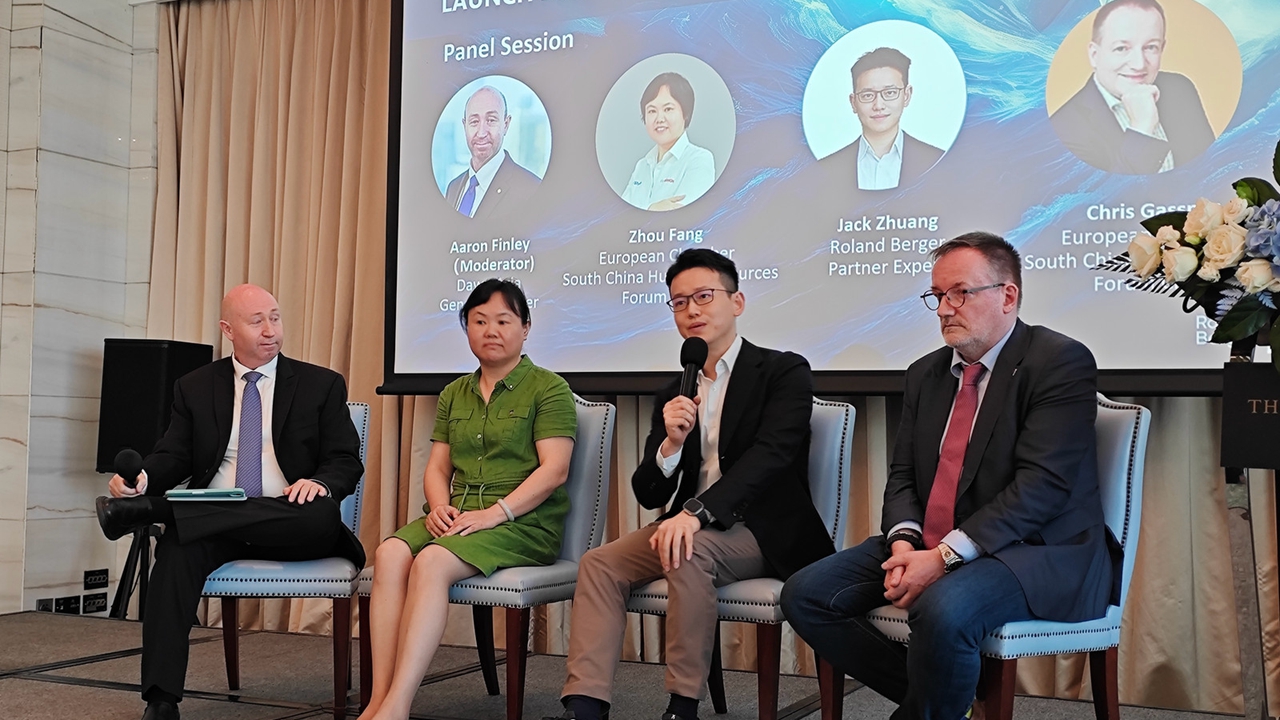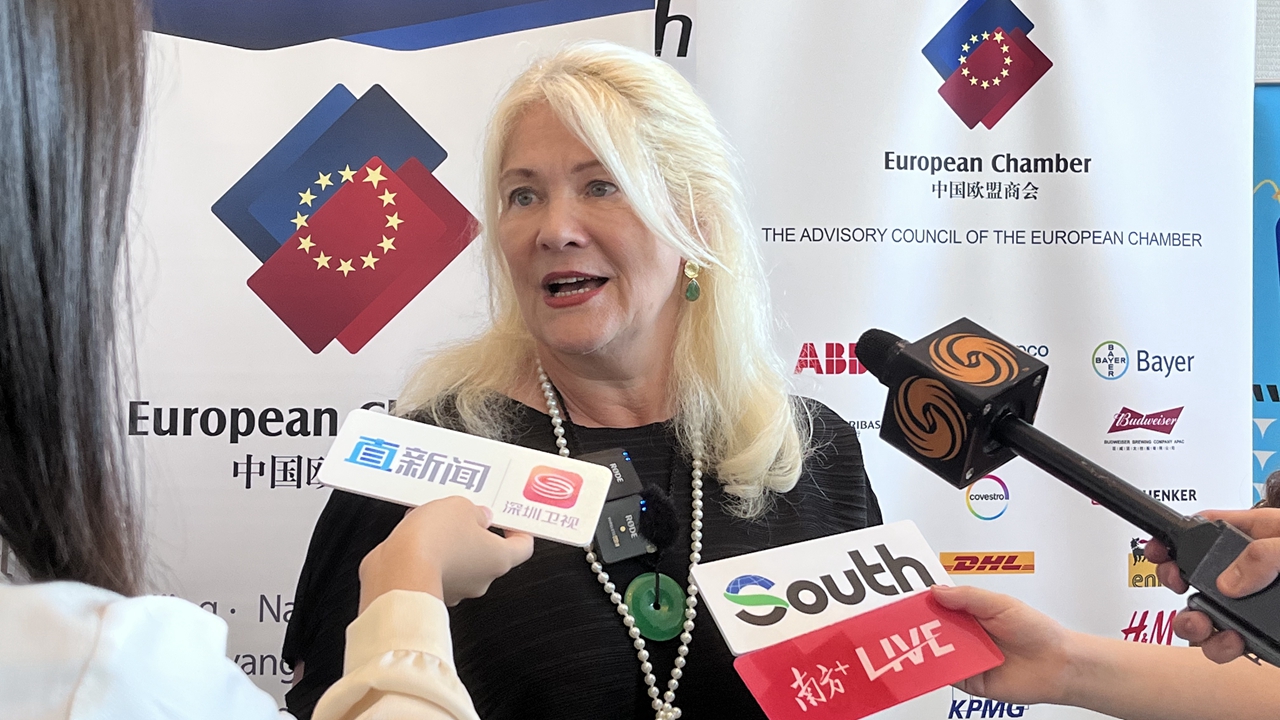South China holds its lure for European businesses: survey
Writer: Zhang Yu | Editor: Lin Qiuying | From: Original | Updated: 2025-06-26
Despite facing challenges that have pushed overall European business confidence in China to record lows, South China continues to hold significant allure, particularly for high-tech industries centered in Shenzhen.
 Invited guests share insights during the regional launch of the European Business in China Confidence Survey (BCS) 2025, hosted by the European Chamber South China Chapter in Shenzhen. Photos courtesy of European Union Chamber of Commerce in China unless otherwise stated
Invited guests share insights during the regional launch of the European Business in China Confidence Survey (BCS) 2025, hosted by the European Chamber South China Chapter in Shenzhen. Photos courtesy of European Union Chamber of Commerce in China unless otherwise stated
This was a key takeaway from the regional launch of the European Union Chamber of Commerce in China’s “European Business in China Confidence Survey (BCS) 2025” held in Shenzhen yesterday, featuring insights from key figures within the chamber.
While acknowledging the broader dip in sentiment driven by economic headwinds, market access hurdles, and regulatory barriers, the discussion highlighted South China’s distinct strengths.

Fabian Blake, vice president of the European Chamber of Commerce in China and chair of the European Chamber South China Chapter, speaks to the press at the survey launch event. Zhang Yu
Fabian Blake, vice president of the European Chamber of Commerce in China and chair of the European Chamber South China Chapter, noted the local government’s efforts in engaging with multinational corporations. “The government is doing a great job of engaging with key stakeholders in multinational companies to understand the economic landscape,” he stated.
Blake pointed specifically to Shenzhen’s premier status in the high-tech sector. “When it comes to high tech, everyone knows Shenzhen is the preferred destination, especially for industries centered on high-value-added technologies,” he explained.

Attendants engage in discussions during the European Chamber's regional launch event in Shenzhen.
He also mentioned substantial investments flowing into Guangdong Province, particularly in petrochemistry and energy. “We see many [European] companies with a nationwide presence in China continuing to invest in South China.”
However, Blake warned that the prevailing difficulties are prompting companies to adjust. “Companies are adjusting their operational and investment strategies as doing business in China has become more challenging.” He urged swift action: “Our message to the Chinese authorities is clear: act now before subdued business confidence becomes the new normal.”

Blandine Cressard, vice chair of the European Chamber South China Chapter, speaks to media during the launch event in Shenzhen. Zhang Yu
Blandine Cressard, vice chair of the European Chamber South China Chapter, offered a complementary perspective, emphasizing tangible attraction despite the challenges.
She highlighted encouraging membership data: “In South China, 72% of our members are still keen to expand their business in South China, which is very positive and promising for South China. It’s quite a good number and has remained the same for the last three years.”
Cressard noted a slight increase in the appeal of eastern China but underscored the enduring appeal of South China, partly due to the Guangdong-Hong Kong-Macao Greater Bay Area (GBA). “Companies are increasingly more positive and appreciative of what is happening with the GBA.”
Cressard stressed the need for increased government-industry dialogue, better coordination between departments, and a more transparent policy environment.